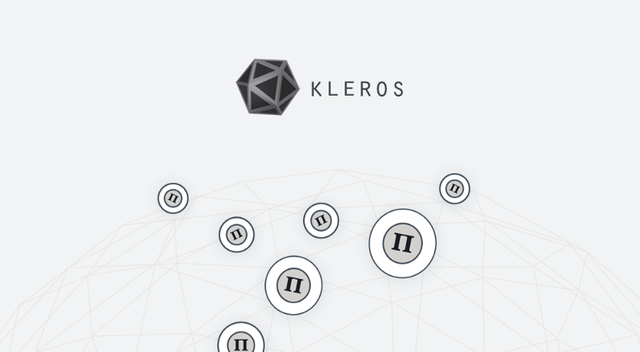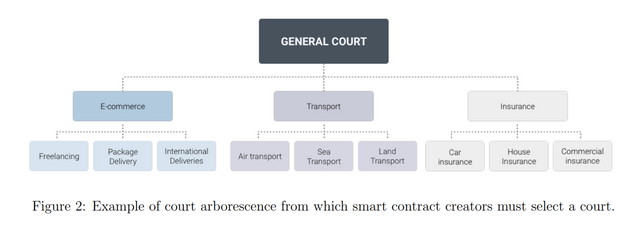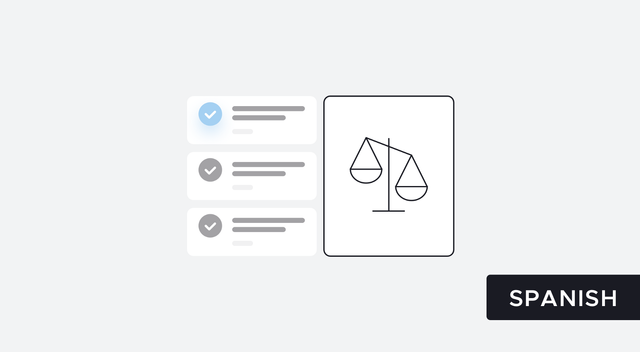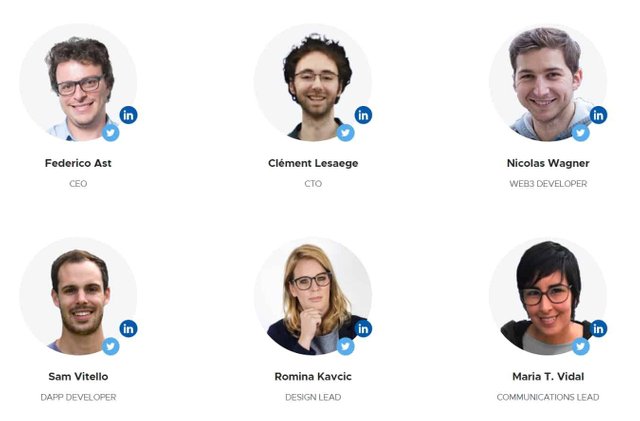INTRODUCTION
Kleros is a decision protocol for a multipurpose court system capable of resolving all kinds of disputes. Kleros acts as a little ass, that is, he works as a third party for the problems of dispute. Each step of the arbitration process (obtaining evidence, selection of jurors, etc.) is fully automated.
Kleros does not trust people, he relies on the decentralized autonomous arbitration platform. An agent (jury) follows a procedure where an input (evidence) is used to produce a result (decision) (15). Kleros takes advantage of crowdsourcing, blockchain and game theory technologies to develop a justice system that produces true decisions in a safe and economical way
Kleros

Kleros is an optional dispute resolution platform. Kleros is a network of juries specialized in various categories that are available to resolve disputes. Through the use of intelligent contracts, Kleros can deposit the funds in question until the selected juries issue a resolution.
What would happen if there was a decentralized service that connects the contending parties with experts in the field? What happens if the agreement established by the two parties gives the experts the right to vote on who is correct in a dispute?
The award is expensive and time consuming. With Kleros, both parties can be protected in case a contract is breached.
Kleros, a Justice Protocol for the Internet
The world is going through an accelerated process of globalization and digitalization. An increasing number of transactions are carried out online among people around the world. Between 3 and 5% ends in disputes, a total of more than 700 million in 2015 alone. Some are eBay buyers who claim that the seller did not ship the product as specified in the agreement. Others are Airbnb users who protest because the house was not "like the one in the pictures". Others are sponsors in collective financing campaigns that claim because the entrepreneurial team failed to deliver the promised results.
The existing methods of arbitration are excessively slow, expensive and unreliable for an online world and in real time. This article presents Kleros, a protocol of adjudication of disputes based on collective intelligence and the blockchain
What they knew about justice
The trials used ordinary citizens as jurors. On the days of trial, those who wished to be part of the jury appeared in court, where a sophisticated selection process was developed. Citizens inserted. Candidates who fell a black die would go home. Candidates with a white die went to the jury (Boegehold 1995). In this way, the kleroterion was an old draw machine that guaranteed transparency in the selection of the jury.
Years ago, the elders discovered that justice could work between pairs provided that three conditions were met: 1) The jury must be voluntary; 2) The jury was to be paid; 3) The selection of juries had to be done by lot (kleros).
As judicial systems face major problems in coping with the increasing complexity of a globalized and digital world, the ideas of the Greek courts are again becoming relevant. They can be the basis for the construction of a decentralized justice system that resolves disputes quickly, economically and transparently.
A Software Dispute
Camila, an entrepreneur from Argentina, hires Orlando, a programmer from Canadian websites, on a platform of independent workers. They agree on the characteristics of the product and Orlando starts working. A few weeks later, it delivers the website. But Camila is not satisfied. It alleges that the quality of work is considerably lower than expected. Orlando responds: "I just did what we agreed." Camila is frustrated. You can not hire a lawyer for a dispute of a few hundred dollars. Much less, with someone from another country.
Imagine that, at the time of the agreement, Camila and Orlando had designated Kleros as an arbitration network in the event of a dispute. When Miguel stops responding to your emails, Giselle clicks the SEND TO ARBITRATION button and completes a simple form explaining your claim.
Kleros decision
The Kleros process consists of the following stages:
-Contract
-Ensure the evidence
-Selection of the jury
-Analysis
-Vote
• The Contract: Kleros is a voluntary system. To use it, the contract between the parties must have a clause indicating that, in case of dispute, it will be awarded in Kleros. The contract establishes in which sub-court the arbitration will take place. Some specialize in electronic commerce. Other in finance. Others in insurance contracts.

Each sub-court has an honorary value, depending on the complexity of the disputes and the shortage of juries with the appropriate skills to solve them.
From the point of view of Kleros, it is necessary who pays the fees. These could be divided equally between the parties, be paid in full by one of them or by an insurance mechanism. The important thing is that there is enough money to compensate the jury for analyzing the evidence and voting a verdict.
• Securing the Evidence: The process begins when at least one of the parties believes there was a breach of contract. When this happens, the contract in digital format and the relevant tests are sent to Kleros with cryptographic security.
The type of evidence will depend on the dispute in question. In the Giselle vs. Miguel, it can be the text of the agreement and the digital files delivered as a product. In a dispute in an online games where one party accuses the other of cheating, the evidence could be a recording of the game. In a dispute over car accident insurance, the evidence could be the insurance contract and the photos of the crashed vehicle.
• Selection of the Jury: The selection of the jury is based on two elements: autopostulation of candidates and lottery. To avoid retaliation and intimidation, juries are not required to provide proof of identity.
The challenge: how to create the right incentives for anonymous juries to judge disputes honestly?
Some time ago, people understood that the problem can be solved through a combination between a token and a random selection mechanism. Anyone can apply as a jury candidate in a sub-court by depositing a token called pinakion (PNK). This represents the possibility of being chosen as a juror in a dispute. The greater the amount of tokens activated by a user, the greater the probability that he will be chosen as a jury. The selection is made randomly among all users who activated their token in a specific sub-section.
The mechanism is extremely resistant to attacks and tampering attempts. The candidates are nominated in a sub-court, not in individual cases. Each sub-section has multiple simultaneous cases. A lottery mechanism assigns the candidate to a specific case. This form of selection acts as protection against bribes. From the point of view of the attacker, a very important part of the money would have to be used to bribe juries that would not even be part of the court.
•** Analysis:** Users drawn as juries receive access to evidence. Now, each one has to analyze it and give its verdict. Different sub-courts have different parameters regarding the procedure and the time that the juries will have to make a decision, the complexity of the voting options and the possibility of communicating with the parties.
In the initial stage, Kleros will concentrate on simple disputes, between two parties and with two options. As technology is perfected, the system will be able to adjudicate increasingly complex disputes.
• Voting: Once the tests have been processed, the jurors vote for one of the options. They are required to provide a justification for their decision. The winning option is the median vote of the jurors. This option gives a consensus result and is robust to strategic voting
• Appeal: In case a party is not satisfied with the decision, it always has the possibility to appeal. Sentences can be appealed multiple times. In each round, a new court is formed with twice as many jurors as in the previous round plus one. The appealing party will have to pay the justice fee. If you lose again, you can appeal again, always taking charge of the costs of the process.
• Redistribution of Tokens: Once the jury reaches a final decision, the pinakions are thawed and redistributed among the juries. Each jury will win or lose tokens based on the coherence of their vote with that of the majority.
If the jurors were correctly selected, if they had access to the same evidence and if they had the right incentives, the concept of a focal point holds that they should reach a similar verdict on the same case. According to this concept, juries who voted inconsistently with the rest were not properly qualified (they applied in a sub-court for which they did not have sufficient knowledge) or did not conduct an appropriate analysis (perhaps, they voted too quickly, only to collect their fee).
As usual, some users will try to abuse the system. But Kleros is robust against attacks. Manny learned it in the worst way. He had always considered himself the smartest in the neighborhood. When he discovered Kleros, he saw an opportunity to earn some easy money. He bought some pinakion and started activating them in sub-courts that paid high arbitration fees. Of course, when he was chosen as a juror, he did not even bother to read the evidence. He only voted randomly, collected the fees and moved on to another dispute.
Kleros: a Protocol of Multipurpose Justice

Although this article uses the example of a software development dispute, Kleros is able to adjudicate a wide range of cases. Some will start working in the immediate future. Others will only be viable in a longer period.
Arbitration of Small Disputes
In recent decades, in order to cut the budget for the administration of justice, different governments have promoted the use of alternative dispute resolution (ADR) in areas such as commercial disputes, consumer protection and employment. Some Kleros applications will include arbitrations of small claims such as credit card fraud, consumer claims and housing rents. The cases would be decided online and the execution will be in charge of the government, as well as the traditional voluntary arbitrations.
Market work
The labor market is changing from traditional employer-employee relationships to distance and flexible contracts with independent suppliers. Kleros's technology could make a significant contribution to expanding opportunities for workers around the world, especially those from countries with weak legal frameworks. A customer from Germany or the United States could hire programming or design services from independent workers in Vietnam, Zimbabwe or Bolivia. In case of dispute, Kleros may provide an arbitration service that currently does not exist. This will significantly increase the chances of being hired for workers from countries with weak legal frameworks.
Decentralized system
A growing part of our lives occurs online. Our social and economic interactions are mediated by global platforms that connect content producers, consumers and advertisers (Facebook and YouTube), buyers and sellers (Amazon and eBay), drivers and passengers (Uber), and travelers and hosts (Airbnb). Some believe that, in the coming years, blockchain technology will allow the emergence of distributed models owned by users of these same platforms.
The vision of Kleros is to build a decentralized network of juries to adjudicate disputes in different industries. In this way, it will become a fundamental part of the infrastructure of the next generation of the Internet.
Smart contracts are agreements written in code that are executed automatically when the predefined conditions are met. However, automatic execution contradicts a basic principle of the philosophy of law: all contracts are incomplete. At the time of signing, no contract can foresee all possible situations that may occur up to the moment of execution. Sometimes, strict application could result in an unfair situation.
The massive adoption of intelligent contracts requires the implementation of an "escape hatch" mechanism. But, how to create an escape without introducing a centralized decision making that represents a new single point of failure in the system?

Kleros can offer a single solution: a decentralized escape, a method of correcting errors to revoke smart contracts when compliance has become unreasonable. An escape decision that works without reintroducing arbitrariness and corruption in the system. This will allow the use of smart contracts to be extended to a growing number of industries.
The challenge Disputes in the global, digital and decentralized economy occur in areas where they can not be resolved by state courts and existing dispute resolution methods.
The Kleros Solution connects users who need to resolve disputes and problems with juries who have the skills to solve them fairly. Our resolution approach uses block chain technology and shared resources juries to resolve disputes quickly, safely and affordably.
Token Kleros
PNK is required for the security of the system against attack by people and to provide juries with better knowledge to resolve disputes honestly. People who judge disputes honestly, on average, will earn money. People who try to play with the system, on average, will lose money. PNK can not be replaced as it is a system, very secure platform and by ETH the dispute is clearer and faster as this would greatly increase the risk of a 51% attack on Kleros.
CONCLUSION
Electronic commerce grows at a double-digit rate. It is expected to reach a market of 2 billion dollars in 2020. It is estimated that the collaborative economy will reach a value of 335 billion dollars in 2025. The World Bank foresees that the use of crowdfunding for the purchase of shares will reach a market of $ 96 billion annually in developing countries only by 2025. The legal systems of the era of national states were successful in creating an institutional framework for economic growth and social prosperity. In the face of the digital revolution, however, they are reaching their limits of complexity. In the context of the new economy, legal systems require a profound rethinking. But there are few who investigate the legal.
The inability of legal systems to resolve disputes of the Internet era led platforms such as eBay or Alibaba to develop their own arbitration mechanisms. However, beyond these isolated initiatives to solve specific problems, no horizontal system has emerged that can be applied in all areas and that can benefit from greater specialization over time. Kleros seeks to become this system.
TEAM
 For more information watch this short feature intro:
For more information watch this short feature intro:








This post has been submitted for the @OriginalWorks Sponsored Writing Contest!
You can also follow @contestbot to be notified of future contests!